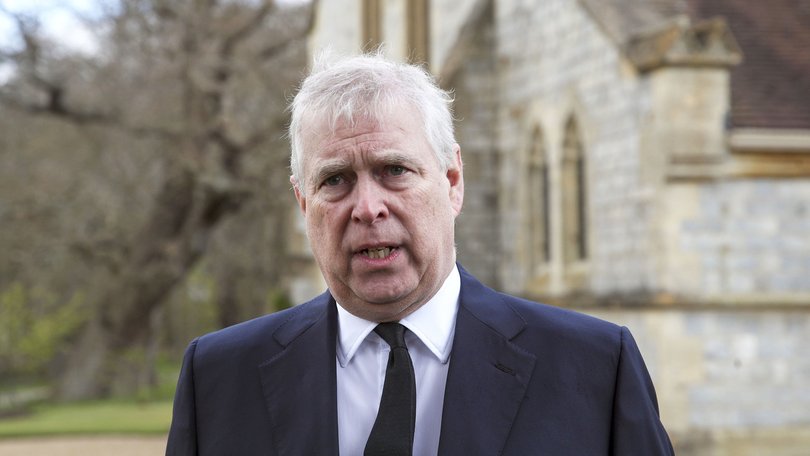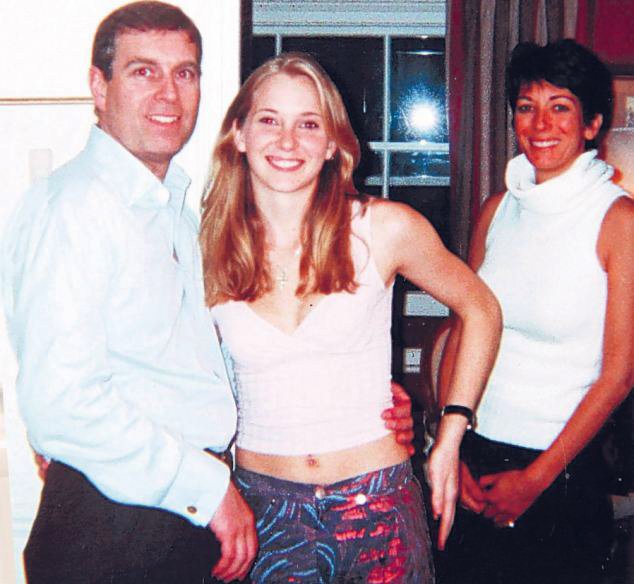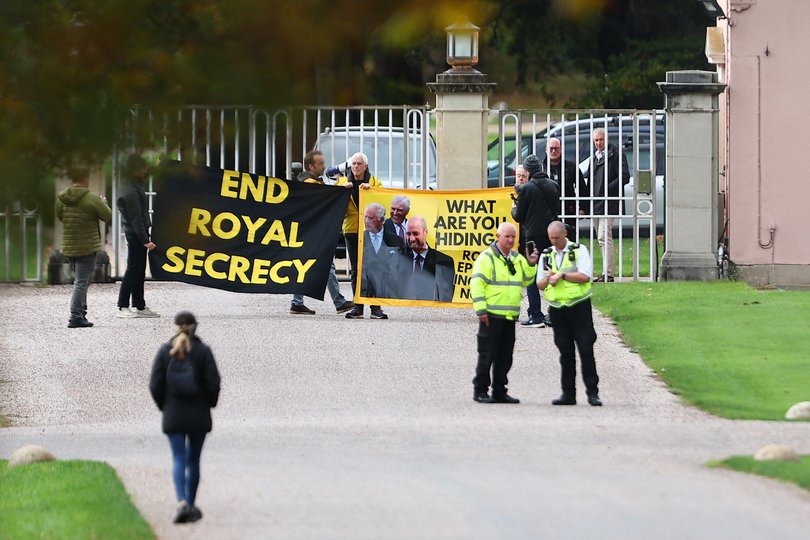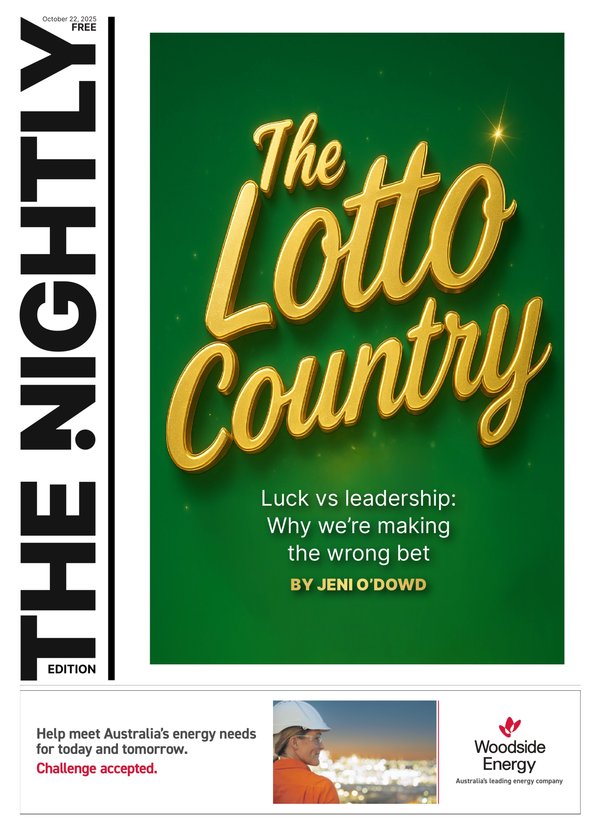THE WASHINGTON POST: Even after dropping Duke of York title, Prince Andrew remains a royal pain

Days after Prince Andrew agreed to stop using his Duke of York title, Buckingham Palace finds itself trapped, yet again, in a scandal that refuses to abate - or abdicate.
Amid renewed outrage over sexual abuse allegations stemming from his personal ties to the deceased America sex-offender, Jeffrey Epstein, Andrew, a younger brother of King Charles III, announced he would no longer use the title.
But while critics welcomed the decision, it has failed to dispel the “Andrew problem.” If anything, the storm has intensified.
Sign up to The Nightly's newsletters.
Get the first look at the digital newspaper, curated daily stories and breaking headlines delivered to your inbox.
By continuing you agree to our Terms and Privacy Policy.The uproar was set off by the publication of a memoir Nobody’s Girl by Virginia Giuffre, one of Epstein’s accusers, which includes a harrowing account of her allegedly being trafficked as a teenager, including to the disgraced prince.
Giuffre wrote that she was forced to have sex with Andrew on three occasions, and his name appears 89 times in the text. She died by suicide earlier this year, shortly after the book was finished.
Now, Britain is debating whether Charles should strip his younger brother of his “prince” title - despite the biological fact that Andrew’s mother was Queen Elizabeth II.
Some say Parliament should make it easier to de-royalise someone, while others are focused on Andrew still living in a 30-room royal mansion, for which he has paid just “one peppercorn” in symbolic rent for the past 22 years.
Meanwhile, the London Metropolitan Police are investigating new claims - contained in Epstein-related emails shared with Congress - that Andrew allegedly gave his police bodyguard Giuffre’s social security number and asked him to dig up damaging information on her.
A palace official said that the accusations should be “examined in the appropriate way.”
“Andrew must cease styling himself prince and disappear,” the Times of London declared in an unusually scathing editorial. It added that Andrew would “save everyone’s time if the eighth in line to the throne (yes, that too must go) declared himself plain Mr Windsor and took himself off to some sunny spot where he can live a life of golf and quiet self-reflection.”
Buckingham Palace, ever eager to shift the narrative, is hoping some celestial optics this week might help. Charles and Pope Leo XIV are expected to pray together in the Sistine Chapel, the first time in at least 500 years that a British monarch and a pope intend to join in a church service.
On Monday, Charles visited Manchester, to meet members of the community targeted in a recent synagogue attack.
After the visit, a Palace spokesperson said: “We hope very much that the focus here today will be on the community impacted by a heinous hate crime rather than any other matters.”
That plea went unheeded. The next morning, many front pages in the British press were plastered with Andrew’s face.
The British monarchy has long presented itself as morally exemplary. What happens behind palace walls is another matter, but its public image has traditionally been one of model family life - stable marriages, Christian duty and service.
That’s why the breakup of Charles and Diana’s marriage was a defining scandal.

Today, Prince William and Princess Catherine seek to project a contrasting image of a happy family of five - a grounded, moral household.
“It’s against that backdrop more than anything, that the revelations around Epstein and allegations with Giuffre, sit so uncomfortably with the royal family,” said royal historian Ed Owens.
The discomfort is further amplified by modern monarchy’s effort to define itself increasingly through charitable work and social causes. Earlier this month, Sophie, Duchess of Edinburgh, visited the Democratic Republic of the Congo to highlight sexual violence in conflict and support survivors.
Queen Camilla has long championed groups that fight domestic abuse, telling a 2024 documentary, “Her Majesty The Queen: Behind Closed Doors” that she would work to raise awareness “until I can do no more.”
These are the kind of charitable acts that the 21st century crown wants to be known for.
“This is how the monarchy justifies itself,” explained Craig Prescott, author of “Modern Monarchy,” an upcoming book that looks at the Crown’s evolving role in British public life.
“It no longer justifies itself from some sort of inherent birthright. Yes, okay, you’re born into this position, but from that point, from that start, you have to earn it. Prince Andrew hasn’t served much public utility - quite the opposite.”
Analysts said that the palace pushed Andrew into relinquishing use of his title after a steady drip of damaging stories - most notably one in the Mail on Sunday, which published an email indicating that Andrew had misled the public when he told BBC Newsnight that he had cut ties with Epstein in December 2010.
The email, reportedly sent to Epstein in February 2011 - contradicted that claim, with Andrew allegedly writing: “ … keep in close touch and we’ll play some more soon!!!!”
Andrew has vehemently denied wrongdoing, and he has never been convicted or even charged. In February 2022, he settled a civil lawsuit with Giuffre for an undisclosed sum but made no admission of liability.
Lying to the BBC, however, said Prescott, was something the Royal Family could “pin on him for being wrong.”
Andrew is not known for contrition, and his statement on Friday about giving up the use of the Duke of York title expressed no sympathy for Epstein’s victims.
Andrew said that he stood “by my decision five years ago” - it was actually six - “to stand back from public life.” Many charities had severed ties with him before that.
Critics say that relinquishing use of the title - and no longer attending Royal Family Christmas events - is not sufficient or commensurate with the allegations of preying sexually on a minor.
Andrew still lives at the Royal Lodge, a palatial residence set in Windsor Great Park that he shares with his ex-wife, Sarah Ferguson.
The Times of London reported that Andrew paid £1 million ($2.1m) for the lease and at least £7.5 million for renovations completed in 2005.
But since signing the lease in 2003, he has been obligated to pay just “one peppercorn (if demanded)” in rent per year - a quaint legal relic that makes sense only in a country where the Royal Family still owns all wild swans. Andrew, who is 65, and his family are allowed to live at the mansion until 2078.
Mr Owens said it would be difficult to evict Andrew because of the lease, which is with the Crown Estate, an independent body that manages some Crown assets with its revenue going to the state.
But he noted the Royal Family - “or whoever is funding him, we’re not sure exactly where he gets his money from” could apply private pressure.
“They could say, ‘look, you’re not going to be able to have continued security or access to other privileges unless you leave the Royal Lodge.’ I think there is private leverage,” Mr Owens said.
Robert Jenrick, the Conservative Party’s point person on justice, was less diplomatic, telling the BBC that Andrew should leave the property and “make his own way in life.”
Some lawmakers are calling on Parliament to enact legislation that would make it easier to strip Andrew of his dukedom, which technically he still holds even though he has agreed not to use the title.
Others, including Giuffre’s brother Sky Roberts, would like Charles to go further and remove “prince” from Andrew’s name, which theoretically could be revoked by “Letters Patent.”
Mr Owens said Charles might hesitate. “The idea that someone who inherits their title at birth can suddenly have that removed is probably quite a terrifying prospect for a king overseeing a head of institution that is going through some difficult times.”
Even if Andrew were stripped of every title and nudged out of his lodgings, experts said it was unlikely the media scrutiny would end.

Removing Andrew’s duke title was “decisive, punchy, and it showed a showed a determination to draw a line under it,” said Robert Hardman, a royal biographer. “Whether it does or not …”
Mr Hardman added: “They could take away everything, make him Mr Andrew, Esquire, and stick him in a council house - and it would still be big news” the next time the British press sniffs a fresh scandal.
Finding a lasting settlement could fall to Prince William when he eventually takes the throne.
In a recent interview with the Canadian comedian Eugene Levy, William said his vision for the monarchy involves evolution. “I think it’s safe to say that change is on my agenda,” he said.
The Sunday Times reported that William “knows the ‘Andrew problem’ will be in his in-tray at some point” and he is prepared to be “more ruthless.”
Mr Owens, the historian, interpreted that as “a member of the family articulating a genuine desire to do something about a problematic relative.”
© 2025 , The Washington Post
